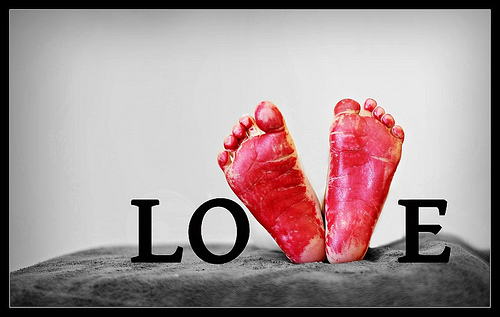 If we were to throw a net over the essence of Christianity, the only word that would fit would be love. Love is a relationship word; it is the tap root of relationship. An intimate relationship cannot survive or thrive if love is not the core motivator. Without love, Christianity would be reduced to nothing more than a legal action designed to force conformity and to establish another religion. With love, Christianity brings God into our lives in an intensely personal way. One does not have to look far in the Scriptures to confirm this sentiment.
If we were to throw a net over the essence of Christianity, the only word that would fit would be love. Love is a relationship word; it is the tap root of relationship. An intimate relationship cannot survive or thrive if love is not the core motivator. Without love, Christianity would be reduced to nothing more than a legal action designed to force conformity and to establish another religion. With love, Christianity brings God into our lives in an intensely personal way. One does not have to look far in the Scriptures to confirm this sentiment.
For God so loved the world that He gave His only begotten Son, that whoever believes in Him should not perish but have everlasting life. John 3:16.
But God demonstrates His own love toward us, in that while we were still sinners, Christ died for us. Romans 5:8
And we have known and believed the love that God has for us. God is love, and he who abides in love abides in God, and God in him. 1 John 4:16
The most captivating quality of this divine love was not its abstraction, but its humanness. God didn’t love us as though we were pieces in an expensive art collection, or a classical music composition being showcased by a maestro. The Pauline epistles injects a human perspective into God’s love, grabbing the raw reality of Calvary and pulling it into the palpable realm where we all live. For when we were still without strength, in due time Christ died for the ungodly. For scarcely for a righteous man will one die; yet perhaps for a good man someone would even dare to die. But God demonstrates His own love toward us, in that while we were still sinners, Christ died for us. Much more then, having now been justified by His blood, we shall be saved from wrath through Him. For if when we were enemies we were reconciled to God through the death of His Son, much more, having been reconciled, we shall be saved by His life. And not only that, but we also rejoice in God through our Lord Jesus Christ, through whom we have now received the reconciliation. Romans 5:6-11.
God’s love transcended words. It was not merely philosophical, as expressed in Henry David Thoreau’s classical essay on Love.
“All transcendent goodness is one, though appreciated in different ways, or by different senses. In beauty we see it, in music we hear it, in fragrance we scent it, in the palatable the pure palate tastes it, and in rare health the whole body feels it. The variety is in the surface or manifestation; but the radical identity we fail to express. The lover sees in the glance of his beloved the same beauty that in the sunset paints the western skies.
It is the same daimon, here lurking under a human eyelid, and there under the closing eyelids of the day. Here, in small compass, is the ancient and natural beauty of evening and morning. What loving astronomer has ever fathomed the ethereal depths of the eye?
The maiden conceals a fairer flower and sweeter fruit than any calyx in the field; and, if she goes with averted face, confiding in her purity and high resolves, she will make the heavens retrospective, and all nature humbly confess its queen. Under the influence of this sentiment, man is a string of an Aeolian harp, which vibrates with the zephyrs of the eternal morning.”
As beautiful as these flowery words may be, they come across as shallow and silly in the light of Calvary’s cross. Put all the Shakespeares, Lord Byrons, Tennysons, Brownings, Bacons and Marlowes together and you will still not dive to the depths of God’s love for mankind. God’s choice of blood, of agonizing pain, of unthinkable condescension, of humiliation and sacrifice told the story of love that poets could never match. His insistence on the ignominious saga of Golgotha cemented His desire for a poignant relationship. Indeed, by the simple invitation to Thomas to put his fingers in the nail prints and thrust his hand into His riven side, He drew us all into an intimate relationship with Himself. Who could deny the depth of God’s love for us after that? Yet, there was more.